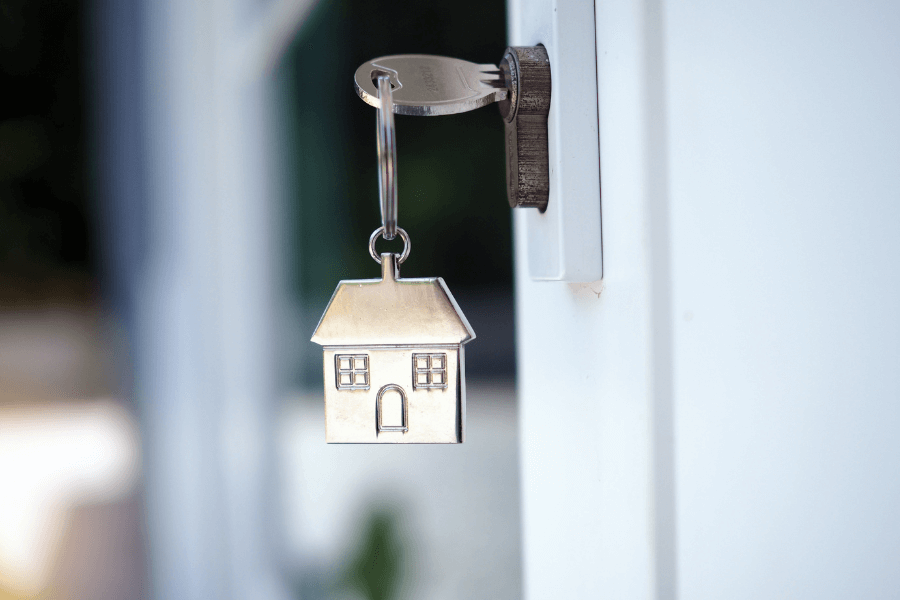Conveyancing is a process where an individual or company transfers ownership of property. It is the legal process that transfers ownership of a property from one person to another. It also ensures that there are no outstanding debts or mortgages on the property. The steps in the conveyancing process are split into three stages as follows:
Pre-contact
Preparation of the contract and vendor statement. When the contract comes into existence, this is when the sale agreement becomes biding and often a holding deposit is paid at this stage.
Pre-completion
- Legal searches of title and other documents
- Surveys and valuations (if required)
Post-completion
Exchange of contracts. Now, contracts of sale are signed by both parties.
Issue of a mortgage or charge for sale. The balance of purchase money is paid and the title is transferred to the purchaser.
Beyond these key steps, the conveyancing process also includes:
- Finding the right property to buy
- Soliciting and negotiating an offer
- Mortgage discharge and/or transfer in the settlement process
Learn how long the home buying process takes.

Do I need conveyancing when buying a home?
There are many reasons why you might need conveyancing when buying a home. It is important to know what these are and if you need this service.
Your conveyancer, and sometimes solicitor as well, will then act on behalf of both parties in order to complete the legal transfer of ownership and ensure that all conditions are fulfilled before completion takes place – this is called conveyancing. Despite its complexity, conveyancing is necessary because it ensures that both parties are satisfied with the terms of their transaction before they enter into an agreement.
When to engage a conveyancer when buying a house
A conveyancer is a property settlement professional who specialises in the legal aspect of real estate transactions. They are often used by buyers and sellers of property to help with the legal paperwork that is required for purchase.
Conveyancers can be useful for buyers, sellers, landlords and tenants. A conveyancer will know about all the relevant laws and regulations that apply to your situation, which means they can give you advice on what you need to do and what you should avoid doing when purchasing or leasing property.
So, how do you know if you need one? As a seller, most state governments recommend hiring a conveyancer at the very beginning or your selling process – it’s important to have all information about the property before you go out to potential buyers to ensure you aren’t legally viable for the oversight of something like easements or land disputes.
As a buyer, there is no legal requirement yet to hire a conveyancer, yet all state governments urge homebuyers to hire a conveyancer as early as possible in the buying process to ensure they have their rights met and avoid sticky situations when deep in negotiation and legal documents.
There is no legal requirement to use a conveyancer for property settlement in most parts of Australia. However, due to today’s complex home loan settlement and home buying documentation processes, it is highly recommended to hire a conveyancer rather than going ‘DIY’. Doing your own conveyancing can be extremely time-consuming, confusing and overwhelming – especially to those new to home buying and selling.
Conveyancer vs solicitor
What does a conveyancer do?
Conveyancers and solicitors are not the same thing. A conveyancer has qualifications specific to conveyancing with a high level of expertise in the field.
A solicitor, however, is a qualified legal expert who may operate in many fields with conveyancing being just one of them.
While someone can be both a conveyancer and solicitor, a conveyancer who is not a solicitor cannot advise on matters of property law and are not equipped to handle complicated legal issues.
While a conveyancer will have qualifications specific to conveyancing and will have a high level of expertise in this field, they are limited in the services they can provide. A conveyancer who is not also a solicitor cannot advise on matters of property law, and may not be equipped to handle any complicated legal issues that arise during the course of settlement.
Below is a list of what a conveyancer can do for both a buyer and a seller during the home buying process.
For a buyer, a conveyancer can:
- Research the property and its certificate of title
- Deposit money into a trust account
- Create and lodge legal documents, such as a contract or sale, vendor disclosure, and memorandum of transfer
- Calculate adjustments of rates, taxes and stamp duties
- Settle your new property – they will act on a buyer’s behalf, advise when the property is settled, and contact your bank or financial institution upon payment
- Represent your interest with a vendor or agent during sale negotiations
For a seller, a conveyancer can:
- Complete legal documents
- Confirm that the seller is the legal owner
- Review the contract of sale and vendor disclosure statement to flag abnormalities or issues
- Confirm that the property meets council standards
- Advise on contract conditions that could protect you (the seller) during the process
- Arrange finances as well as deposits and stamp duty deposits
- Researching information that may not have been previously available – like fence disputes or illegal building work
- Represent you and your interest when negotiating with the buyer
Can a conveyancer give legal advice?
While a conveyancer is a person who deals with the legal aspects of property transactions and related matters, they do not give legal advice.
A solicitor is a qualified lawyer who can give legal advice. They are also qualified to represent clients in court and before government bodies.
What does a solicitor do?
Solicitor is an individual who helps people with legal issues. They are professionals who have been qualified and authorised by a governing body to give legal advice and represent clients in the courts of law.
A solicitor is a lawyer who deals with matters like conveyancing, wills, probate, property transactions, and criminal cases. A solicitor also advises on corporate law and has the power to act as a trustee or executor.
When to get a conveyancing solicitor
It’s important to know the difference between a conveyancer and a solicitor. As a rule, you are more likely to need a solicitor when selling a property whereas you should only need a conveyancer when buying a property. Really, it comes down to what state you’re in and what kind of property deal you are expecting.
The legal obligations dictating which you will need differ per state. In Queensland and the ACT, the law requires you to hire a solicitor to perform conveyancing. If you are in other states around Australia, that decision depends on a range of factors, as below.
A conveyancer is best if you:
- Are expecting a straightforward transaction
- Are working to a strict budget and need certainty around the total costs of services
- Need someone who specialises in conveyancing
A solicitor is best if you:
- Are expecting a complex or high-value property deal
- Have concerns about the translation becoming litigious
- Need broader legal advice or foresee any legal issues arising
How much does conveyancing cost?
Who pays conveyancing costs?
If you have engaged the services of a conveyancer, you will be the one paying the bill. This means both buyers and sellers may have to pay conveyancing fees – but only if you hire them, there are no hidden costs.
Some people might qualify for government assistance when it comes to paying for conveyancing costs. For example, if you are a first home buyer and your family earns less than $94,000 per year in income, then you may be eligible for assistance from the Australian Government’s First Home Owners Grant (FHOG).

When do you pay conveyancing fees?
The conveyancing fees in Australia are paid when the transfer of property is completed. The completion of the transaction usually involves a series of steps, including:
1) signing a contract and exchanging contracts
2) paying stamp duty and other government charges
3) arranging for the settlement agent to complete the transaction and
4) paying any other necessary fees.
How much are conveyancing fees?
Conveyancing fees are the expenses incurred by a buyer or seller of property in connection with the purchase and sale of real estate.
The fees can be calculated at an hourly rate, as a project fee or as a percentage of the sale price and vary depending on the state you live in.
The average fee for a home purchase is around $1,150.
How do I find a conveyancer or solicitor?
When you’re new to home-buying, it can be hard to know how to choose a good conveyancer or solicitor. Often, the best way to find a great conveyancer is to make use of referrals and recommendations by people you trust. You can also ask your real estate agent or other professionals you trust, like an accountant or lawyer.
The best place to look online for conveyancers is on the Australian Institute of Conveyancers website, and navigate whichever state division you are in. Licensed conveyancers can be found in six jurisdictions in Australia, excluding Queensland and Australian Capital Territory. Each state division will have a directory of conveyancers to choose from.
- AIC Directory VIC: https://www.aicvic.com.au/find-a-conveyancer/
- AIC Directory NSW: https://www.findaconveyancer.com.au/
- AIC Directory WA: https://aicwa.com.au/find-a-conveyancer/
- AIC Directory TAS: http://aictas.com.au/Find-A-Conveyancer.php
- AIC Directory NT: https://aicntconveyancers.com.au/find-a-conveyancer/
How do I know if they are a good conveyancer?
Once you have a list of legitimate conveyancers from the AIC website, contact them to ask the questions below to help give you an idea of whether they are the right fit. Bear in mind, some conveyancers specialise in different types of real estate – for example, apartments, cross leases, subdivisions etc.
Questions to ask a conveyancer
- What types of property do you mainly specialise in?
- What are your fees and are there any additional costs?
- How will you communicate with me and how often?
- On settlement day, what timeframes are we looking at? This is important if you are arranging furniture removalists and other parties.
Conveyancing rules by state for buyers and sellers:
NSW: In New South Wales, there is a cooling-off period of 5 business days after the contracts are signed. Find more information about conveyancing rules in NSW.
VIC: In Victoria, the cooling off period after signing the Contract of Sale of Real Estate is 3 business days. Here is all you need to know about conveyancing rules in VIC.
QLD: In Queensland there is a cooling-off period of 5 business days, ending at 5pm on the fifth day. If the buyer decides to cancel the contract within this time, the seller has the right to deduct 0.25% of the purchase price from the deposit. Read about conveyancing rules in QLD.
SA: There is a 2-business days cooling-off period after signing the contract, in which the buyer would get a 100% refund of any deposit that exceeds $100. Find detailed information about conveyancing rules in SA.
WA: In Western Australia conveyancers are called “Settlement Agents”, and a cooling-off period is not mandated by law after a contract of sale, also called an offer and acceptance offer (O&A), has been signed. Learn more about conveyancing rules in WA.
ACT: In Australian Capital Territory, the cooling-off period is of 5 business days and the seller has the right to take 0.25% of the purchase price form the deposit. Find more information about conveyancing rules in ACT.
TAS: In Tasmania, after a real estate contract has been signed, there is no cooling-off period, unless previously agreed by both parties and stated in the contract. Read more about conveyancing rules in TAS.
FAQs about property conveyancing
Is a solicitor and conveyancer the same thing?
No. A conveyancer is an expert in property settlements, and a solicitor is a legal professional who can do conveyancing tasks, but can also provide you with other legal advice in property law (in case legal issues arise).
Do I need a conveyancer and a solicitor?
You don’t need both, in most cases. Although knowing if you need a conveyancer or a solicitor will depend on many factors.
- Your location: In ACT and QLD it is required to hire a solicitor to represent you.
- Your financial situation, as solicitors’ fees are higher than conveyancers’.
- Complexity of transaction, as a solicitor can give you wider legal advice.
Does a conveyancer need to be a lawyer?
No. Conveyancers are fully qualified to execute solely conveyancing processes.
Do I need a conveyancer before I make an offer?
It is highly recommended as you could have the contract reviewed by a professional before signing it. Although, it is not mandatory.
Do I need a conveyancer for a remortgage?
If you are refinancing your mortgage with the same lender, you most likely won’t need a conveyancer. However, if you’re switching lenders, you most likely will need conveyancing services.
Learn more about negotiating better home loan rates.
Can you negotiate conveyancing fees?
There is no scale of costs for conveyancers in Australia, so fees can be negotiated. However, it is important to keep in mind that additional fees could apply if you needed services that are out of the conveyancer’s scope.






It got me when you said that conveyancing would be necessary to ensure that both parties would be satisfied with the terms before they agree on their transaction. I will tell my mom about this so that she sees the importance of this service. It can ensure that she will not have issues in the process of selling the house to my grandmother which she cannot manage anymore. https://palmerstonlawyers.com.au/expertise/buying-and-selling-real-estate/